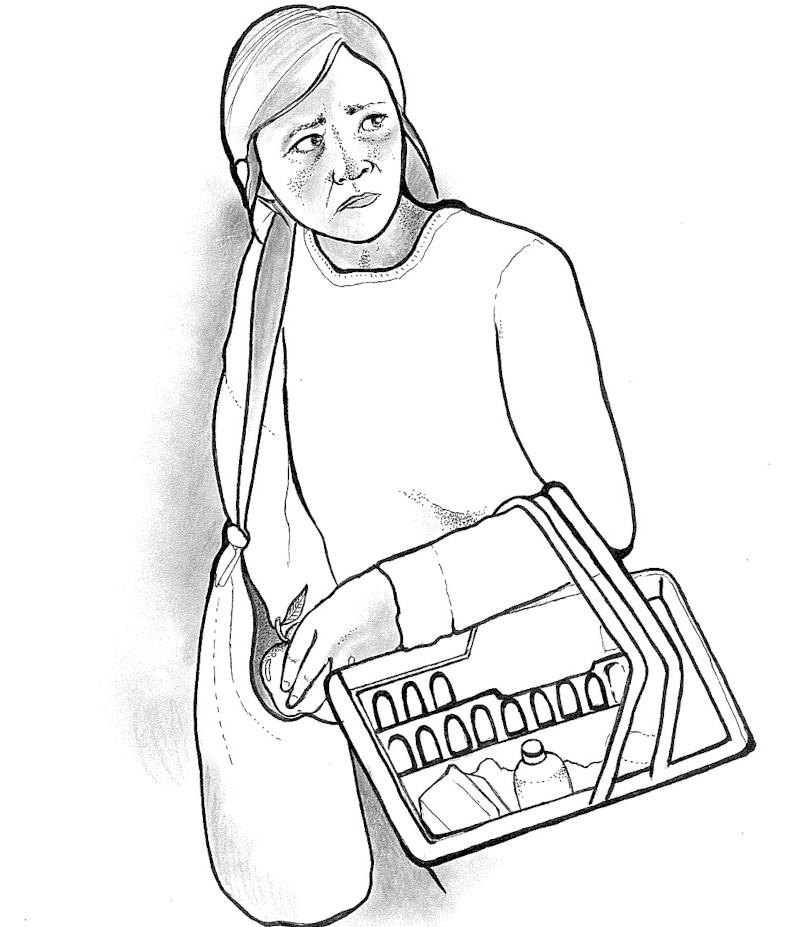Why more people have become okay with grocery theft
And who really pays for it
In January, Global News reported that soaring grocery prices may have led to an increase in theft at Canadian grocery stores.
Global interviewed researcher Stephen Charlebois about an op-ed he wrote titled “We all pay for grocery theft” that discusses customers and employees who steal from food stores. Surprised by the response to his article, Charlebois tweeted: “You think it’s appropriate to shoplift while grocery shopping, just because prices are too high? Crazy.”
While the tweet has 7.2 million views and more than 4,300 responses, it’s been liked less than 1,200 times.
In response, people tweeted things like “Tell me what happens when people can’t afford food, professor?” and “Do you think it’s appropriate for grocery shops to inflate prices beyond the affordability of their own low-paid workers? For people who stack the shelves to be resorting to food banks?”
I agree with them. In 2022, another Global News article listed meat, cheese and over-the-counter medicine as the most-shoplifted grocery items. When food and other necessities become luxury goods and the cost of essential items becomes inaccessible, it comes time to disrupt the status quo.
As the partner of someone who works at a retail corporation, I also see how the complicated burden of loss prevention often falls on workers.
Poverty, addiction, a growing illegal resale market and rebellion against inflation are some of the reasons people resort to grocery theft. At my partner’s store, like many others, employees are trained to be gatekeepers.
They are trained to remain vigilant for signs like large, open shopping bags and evasive behaviour. Workers are instructed to be non-physical and to keep watch from a distance. These tactics can still feel invasive, and people sometimes react unpredictably. When workers exercise their discretion, they are sometimes the recipients of verbal harassment – both from shoplifters and other customers.
Recently, a customer yelled at my partner. They were annoyed that he hadn’t stopped another shopper from taking bread and milk. Sometimes, a win is successfully stopping someone from trying to take a basket full of high-priced cosmetics. But, usually, these altercations create tense environments where no one wins.
Charlebois said that industry data shows grocery stores lose a weekly average between $2,000 and $5,000 of stolen goods. To cover losses, grocers need to raise prices. Yet, last year, Canada’s top grocery executives received millions in bonuses, while continuing to deny their workers pandemic pay.
A friend recently sent me a comic from the Instagram account @avocado_ibuprofen. In it, The Champagne Communist introduces a “radical praxis” to change how people think about champagne and wealth distribution. As a luxury only the privileged can enjoy, he suggests shoplifting the bubbly to hand out to those most in need.
While acknowledging how this may sound illegal and unethical, he says the system is already unjust and oppressive.
On the fourth slide, he implores people to steal safely and responsibly. “The goal here is not to harm anyone, but to bring attention to the inequalities that exist in our society and to create a better world for all of us.”
I appreciate this sentiment. But it’s the people at the top of these corporations – the big executives receiving the inflated bonuses – who need to start feeling the impact.
Amanda Emms is a freelance communications writer. She loves staring at her plants and documentaries. The library is one of her most beloved spaces.
Published in Volume 77, Number 18 of The Uniter (February 9, 2023)








